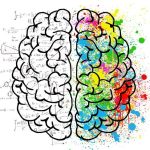“The best leaders know themselves best and surround themselves with the rest.”
Lori Stohs
Let’s dig deeper into this concept of Self Awareness first by watching the video below by Lori Stohs.
The video covers a lot of other concepts such as character, values, and beliefs.
We’ve all been there – receiving well-intentioned feedback from a boss or coworker, only to react defensively without realizing the folly of our actions. Or witnessing our productivity decline and resorting to endless cups of coffee, only to crash shortly after. These patterns become routine, etching themselves as default reactions, all the while avoiding introspection. To make matters trickier, most of us lack someone to hold us accountable, leaving us blind to our errors and their consequences.
Related: The 12 Elements of Emotional Intelligence: Which Do You Need to Work On?
Halting these default responses before they take hold is a daunting challenge, demanding unyielding discipline and moments of contemplation. Shifting from experiencing events to explaining them is natural. Imagine catching yourself in the act of trolling online, recognizing that your ego’s been bruised, and choosing not to lash out. Often, though, we impulsively react first, then justify our actions after the fact.
Harvard Business Review writer Anthony K. Tjan asserts that a quality transcending all others is self-awareness, evident in great entrepreneurs and leaders. This trait drives them to fathom their motivations and decisions. The path to self-awareness requires a pause, a chance for clarity to replace impulsive behavior. It’s a battle against our ingrained responses; our minds instinctively shield themselves. But instead of expending energy on futile actions that feed our egos, we can pause, reflect, and prioritize our well-being.
Self-awareness, the conscious understanding of oneself, serves as a stepping stone for reinvention, wiser choices, and attunement to thoughts and emotions. External excuses often deflect blame, yet true growth entails examining our thoughts, embracing varied perspectives, and learning from blunders. In the words of Roman philosopher Seneca, “You have to catch yourself doing it before you can reform.”
R
Developing self-awareness takes varied forms. Here are a few tactics for this demanding yet rewarding journey:
1- Embrace the Challenge with Dedication
Becoming conscious of our thoughts and actions is invaluable for self-knowledge and change. Alcoholics Anonymous and cognitive behavioral therapy prioritize self-awareness to confront fears, thoughts, and behaviors. Changing our mental landscape is a struggle against ingrained routines. Yet, it’s a fight worth waging, even if the cultural narrative doesn’t promote it. Humbling oneself, admitting weaknesses, and dropping facades can be arduous but transformative.
2- Cultivate Self-Reflection
Allocate time for self-reflection, whether through meditation, journaling, or discussing with a confidant. Avoid emotional reactions; instead, dissect situations, seeking to understand missteps. This curiosity aids in problem-solving more effectively than venting frustrations.
3- Build a Philosophical Framework
Philosophy can guide us when mentors aren’t at hand. Extract practical wisdom from various sources, applying principles that resonate with your life. Return to this framework in times of need. Remind yourself of quotes, mantras, or role models that guide your actions.
Maya Angelou’s wise words, “When you know better, you do better,” underline the importance of learning from mistakes. Self-improvement isn’t a mere checklist; it’s a continuous practice. Self-awareness is the muscle to strengthen, empowering us to navigate life’s evolving landscape. Recognize the resistance from societal influences and your own mind, making it easier to rise above tantrums and self-deception.
Mastering self-awareness doesn’t conclude with a seminar; it’s a lifelong journey, sculpting the best version of ourselves. It’s about understanding our impulses, thoughts, and actions while aligning them with our guiding principles. With self-awareness as our compass, we can navigate towards becoming the finest versions of ourselves.


